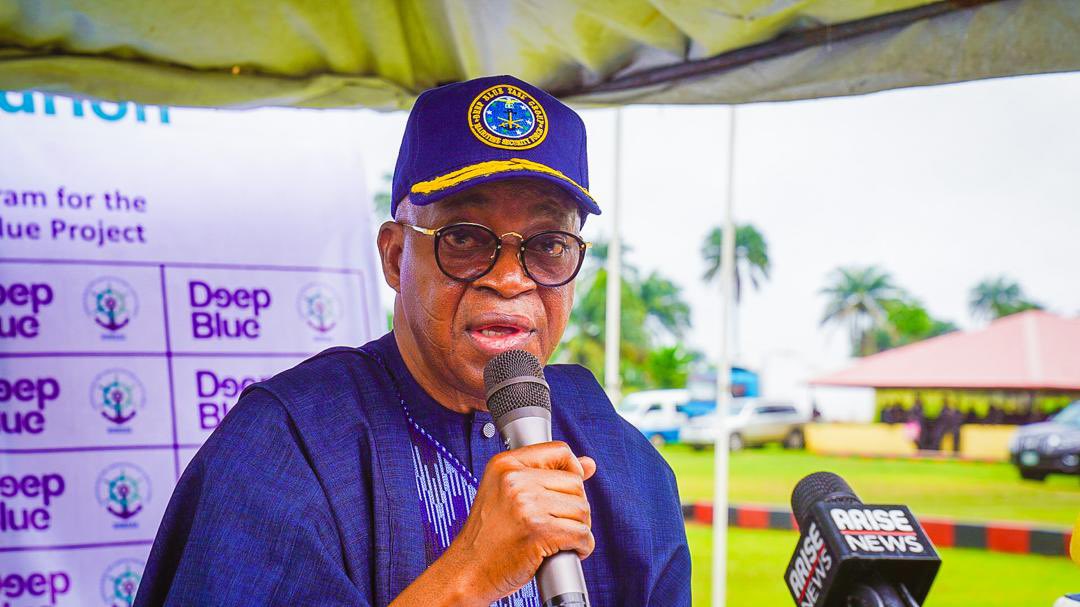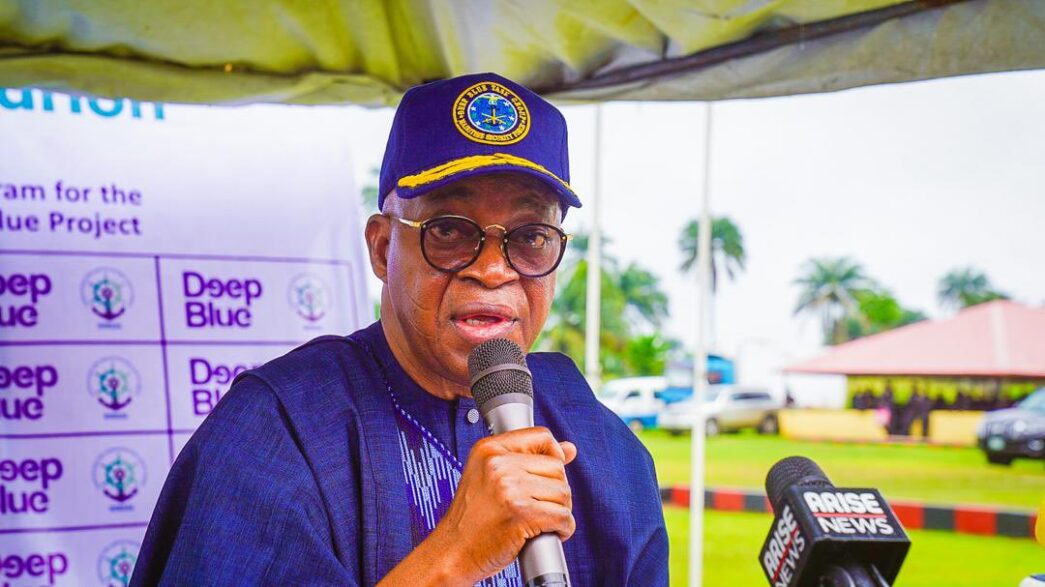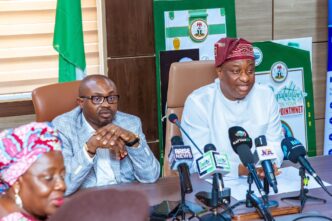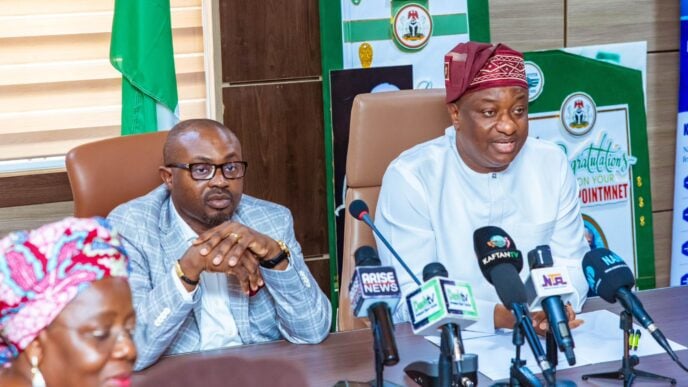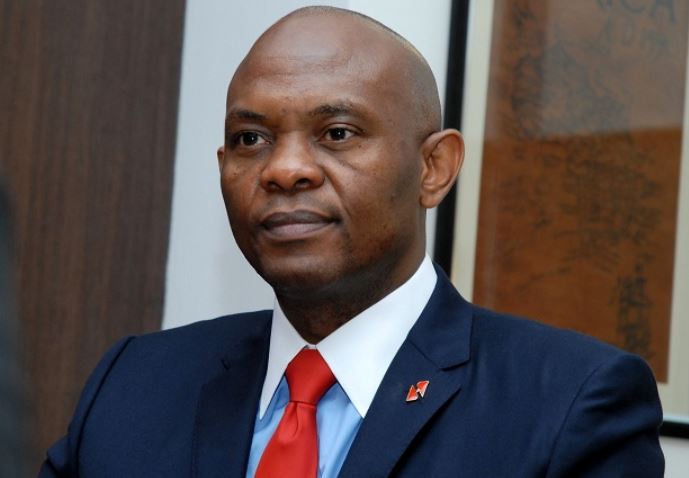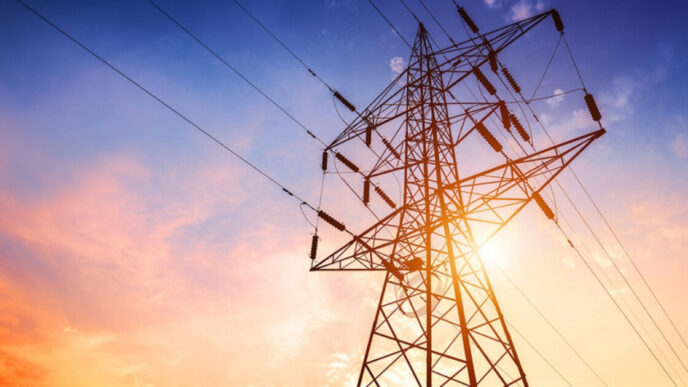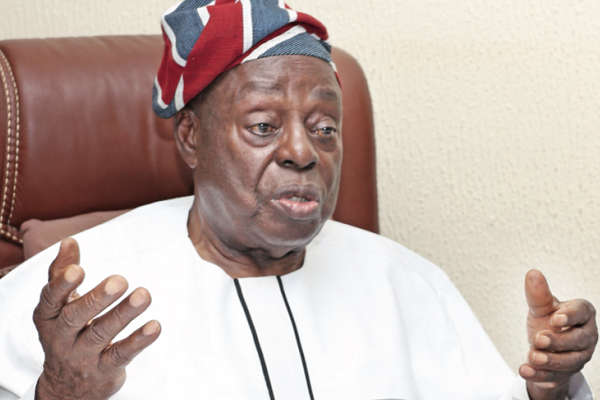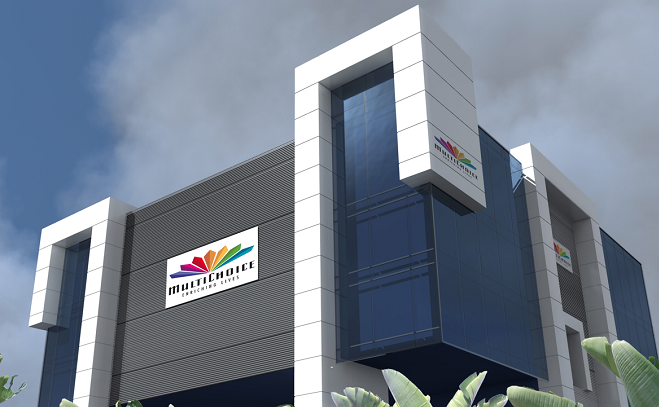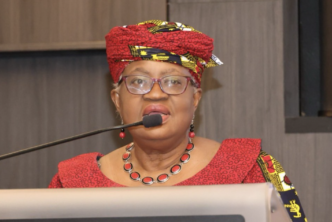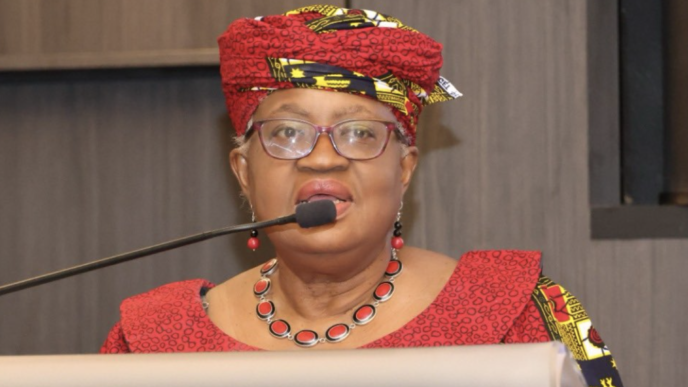Gboyega Oyetola
Adegboyega Oyetola, minister of marine and blue economy, says the ministry is working towards integrating road, rail, and inland waterways connectivity to Nigeria’s ports to enhance efficiency and competitiveness in the maritime sector.
Oyetola spoke on Wednesday during the third maritime transportation industry breakfast in Lagos, themed, ‘Prospects for Accelerated Growth and other Matters Arising’.
According to NAN, Oyetola was represented by the director of maritime services of the ministry.
He said the ministry is also advancing the sector’s growth by developing the port community system — an electronic platform designed to streamline and automate processes for industry stakeholders.
Advertisement
The minister said the electronic platform would minimise processing time, facilitate smooth coordination among stakeholders, and improve the ease of doing business at the country’s ports.
He said the ministry is also implementing the turtle excluder devices (TEDs) certification exercise to align with global conservation efforts and regulations.
According to Oyetola, the initiative would enable Nigerian fishers to demonstrate their commitment to sustainability, open doors to eco-friendly markets, and improve demand and pricing for their products.
Advertisement
“The ministry has made moves toward strengthening the regulatory frameworks, enhancing the capacity of local fishers and encouraging private sector participation in modern aquaculture techniques to ensure the long-term viability of the industry,” Oyetola said.
“It is engaging relevant stakeholders to finalise the arrangement for the disbursement of the Cabotage Vessel Financing Fund (CVFF) to partners to improve the capacity of indigenous shipping firms.
“It also involves Constitution of a National Fleet Implementation Committee to establish a private-sector led Nigerian maritime fleet to participate in the carriage of the country’s import and export cargoes; among others.”
Oyetola said the maritime sector has long been a cornerstone of global trade and economic growth, handling over 80 percent of worldwide trade volume and offering vast oceanic potential valued at more than $1.5 trillion annually.
Advertisement
‘PORT MODERNISATION PROGRAMME HAS COMMENCED’
Oyetola announced that the ministry, in collaboration with the Nigerian Ports Authority (NPA), has commenced the port modernisation programme.
He said Apapa and Tin Can Island ports have been selected as pilot projects to ensure the reconstruction of outdated and dilapidated port infrastructure for improved vessel and cargo turn-around time.
The minister acknowledged that the sector still faces challenges such as infrastructure deficits, security concerns, and environmental issues.
Advertisement
“Addressing these challenges requires a multifaceted approach to position Nigeria as a leading maritime hub in Africa,” he said.
In her remarks, Funke Agbor, president of the Nigerian Maritime Law Association, reaffirmed the association’s commitment to supporting the legal, institutional, and policy frameworks that will enable the maritime sector to thrive.
Advertisement
“We will continue to contribute to the sustainable development of our maritime and blue economy sector,” she said.
Agbor noted that maritime transportation is central to global trade and economic integration with an expansive coastline, strategic geographic location in Nigeria and growing interest in the blue economy.
Advertisement
The association president said there is untapped potential for growth, adding that unlocking it requires intentional policy frameworks, robust regulatory oversight, private sector involvement, and ongoing stakeholder engagement.
Advertisement
